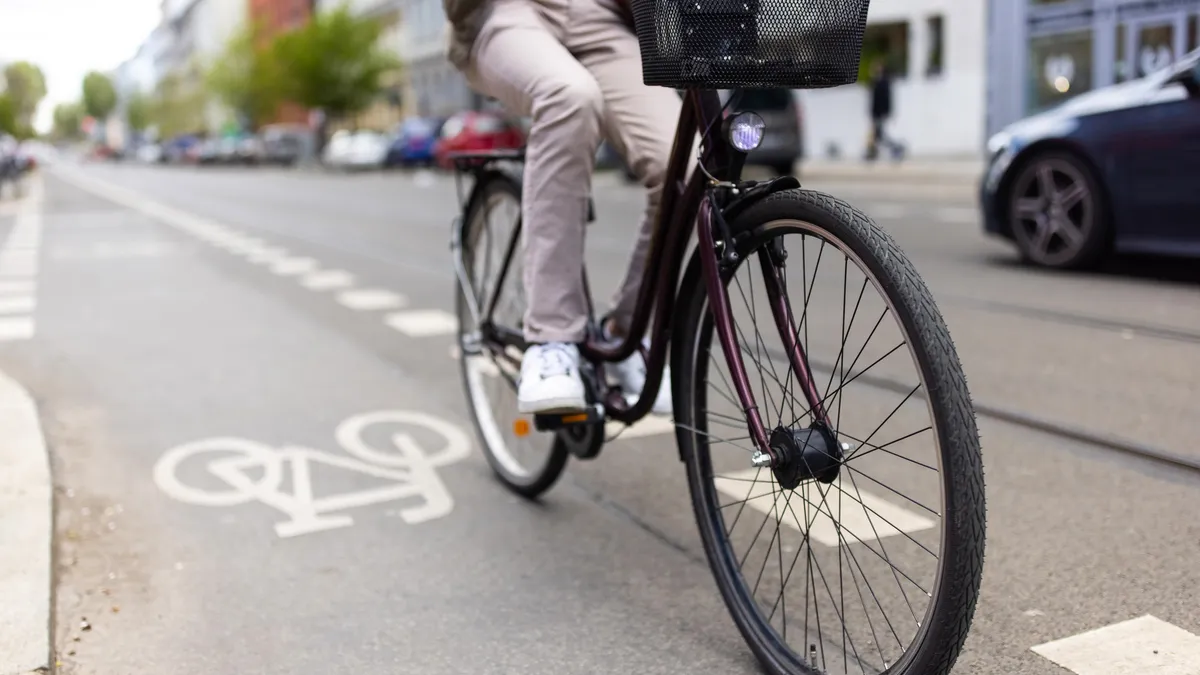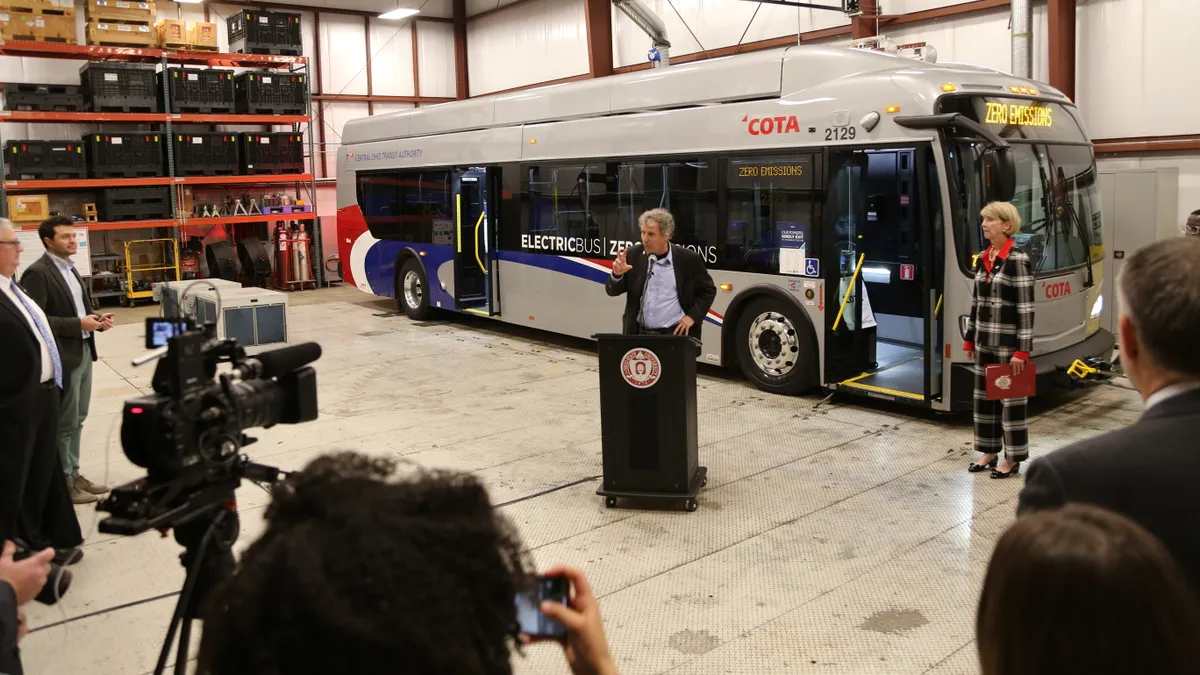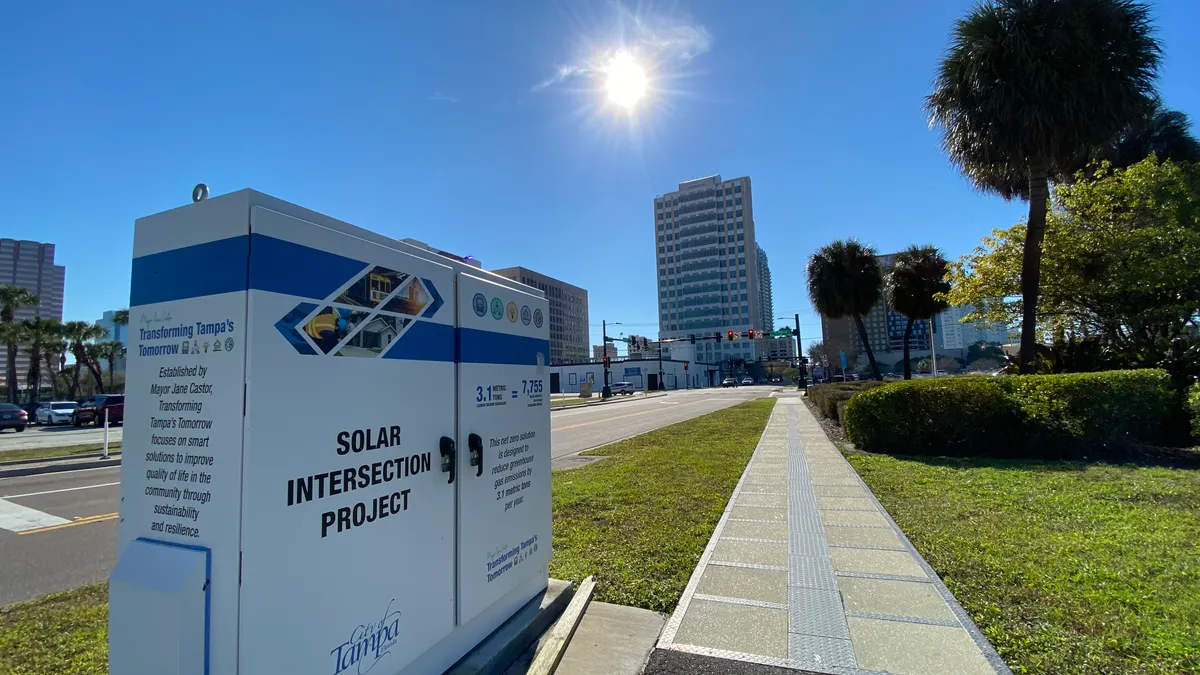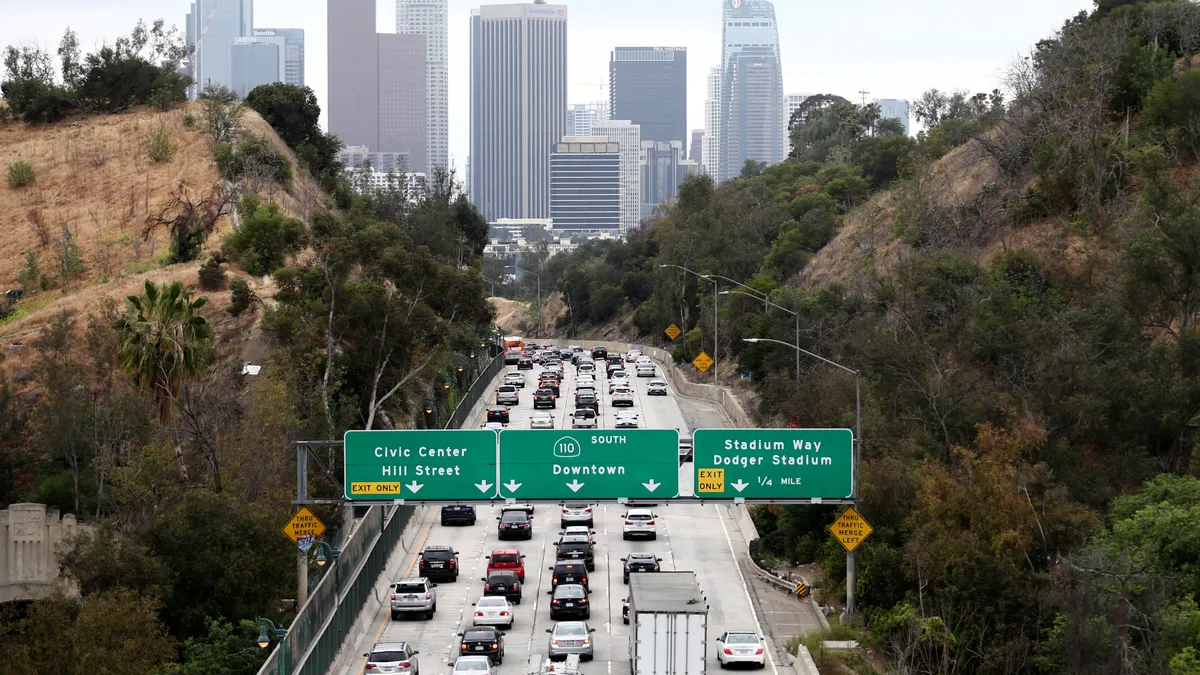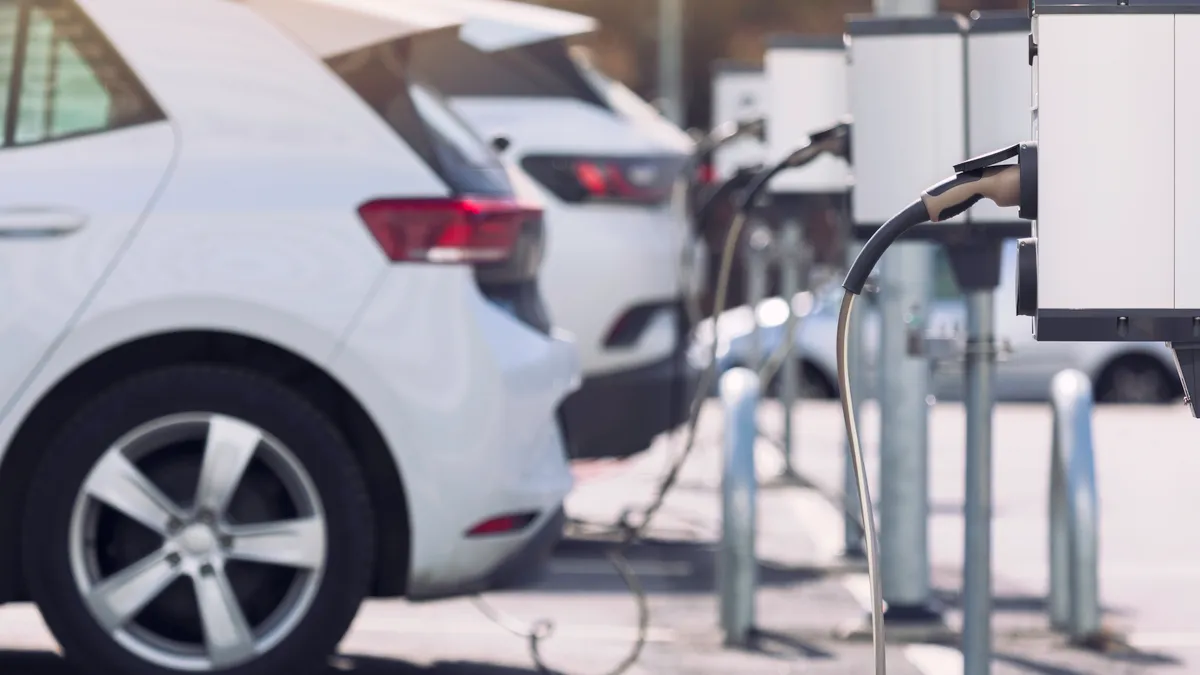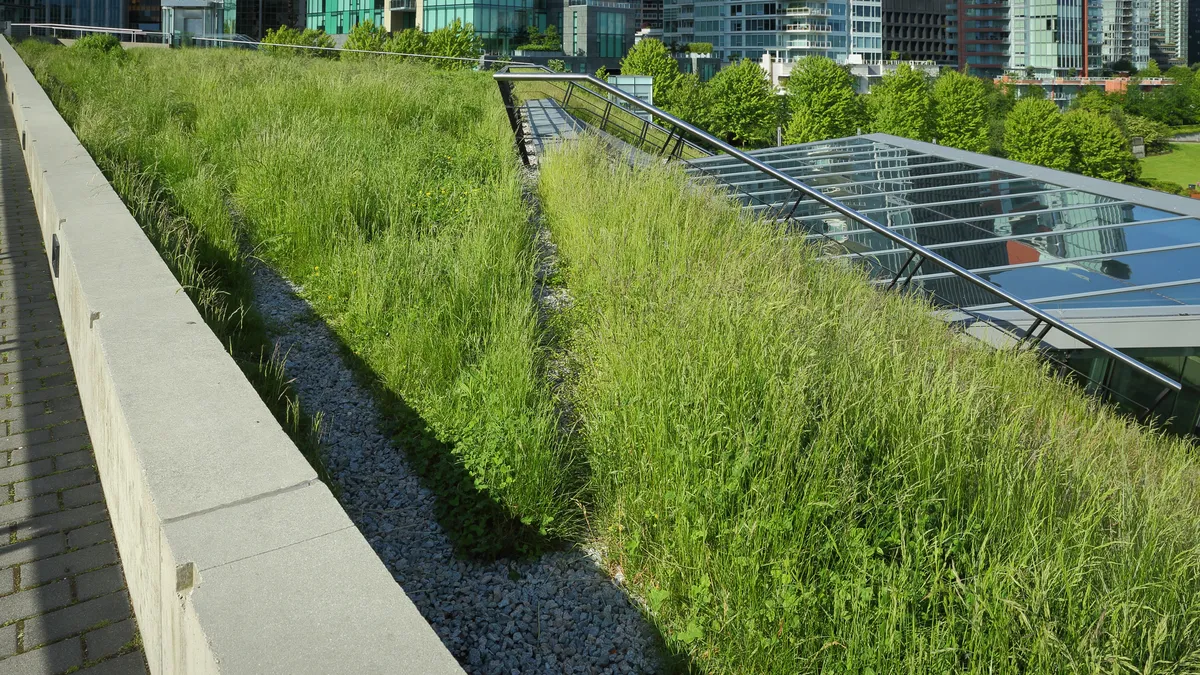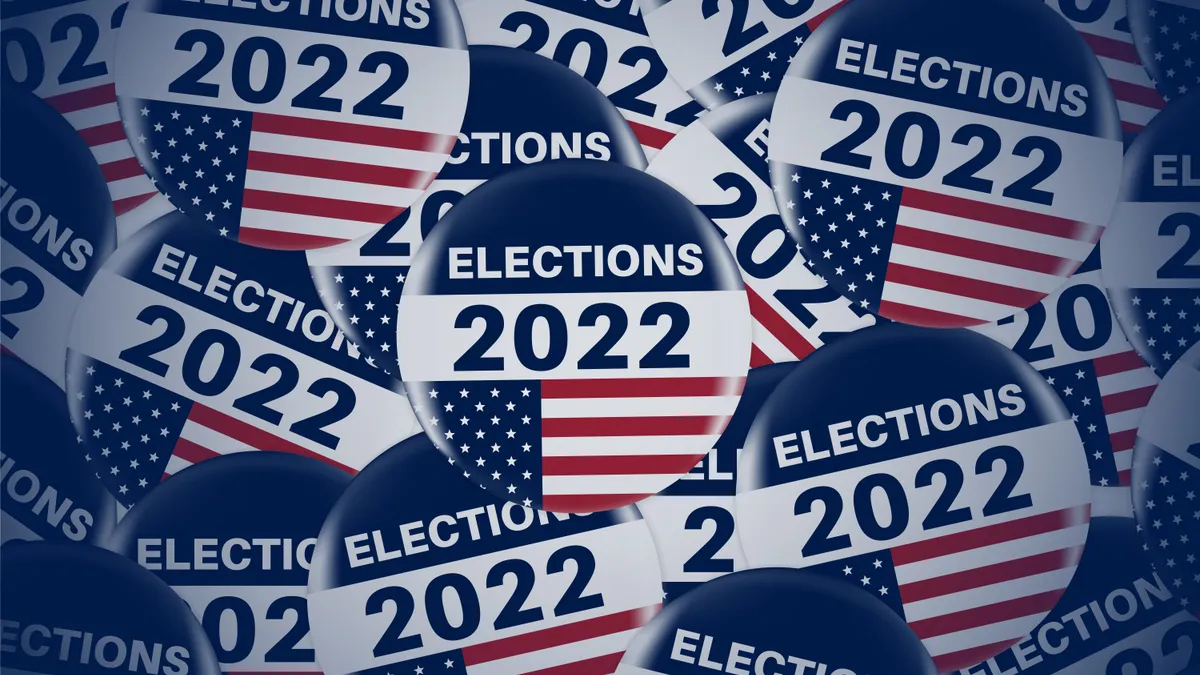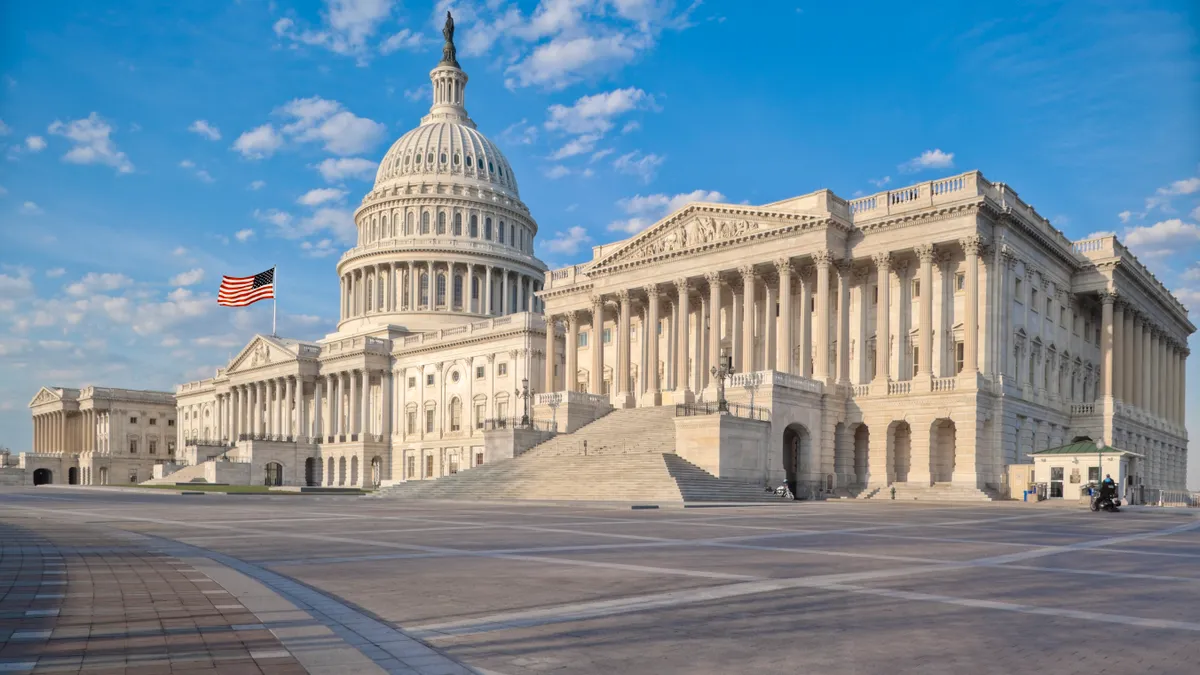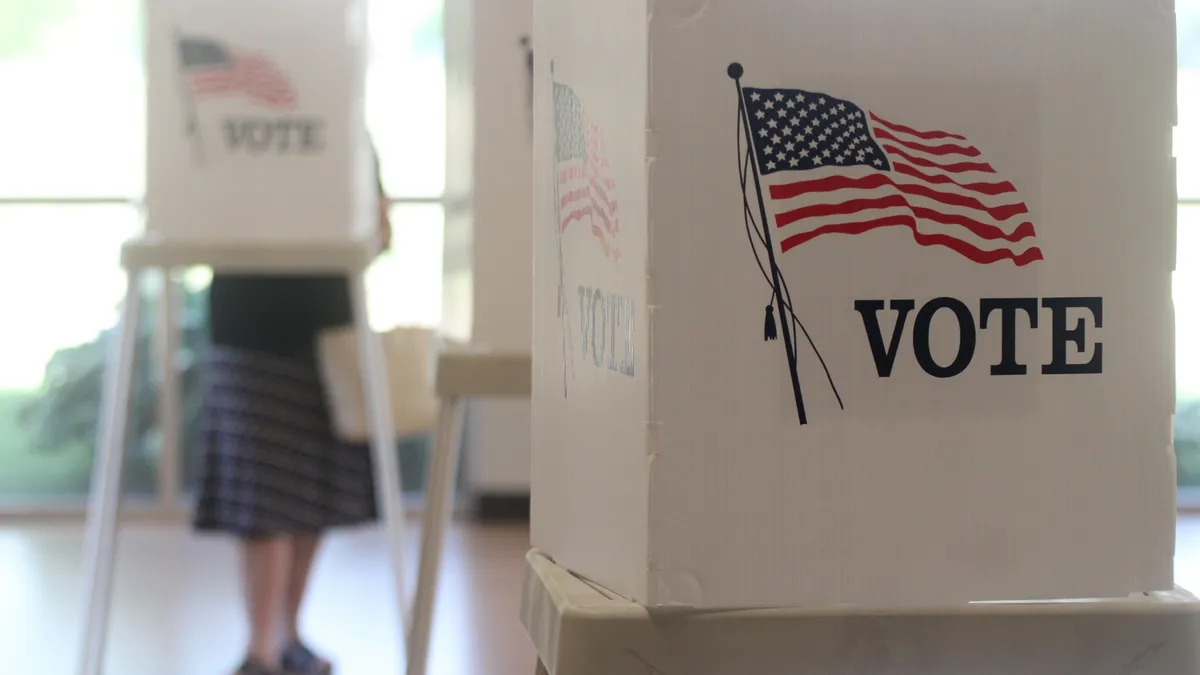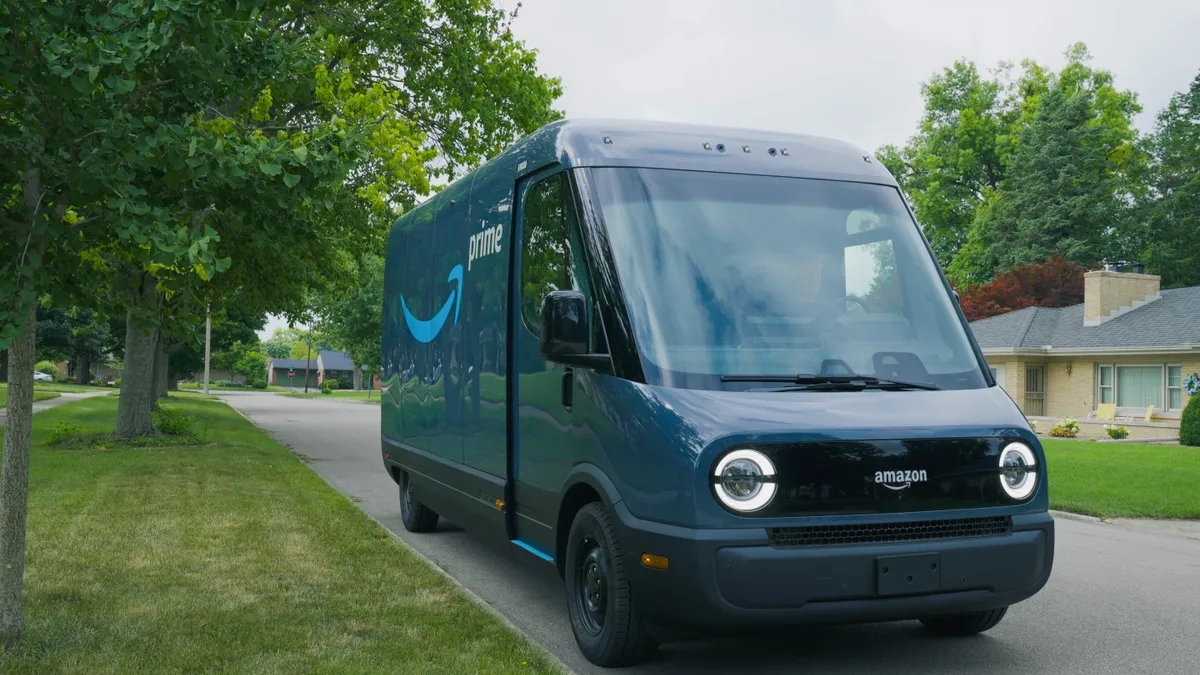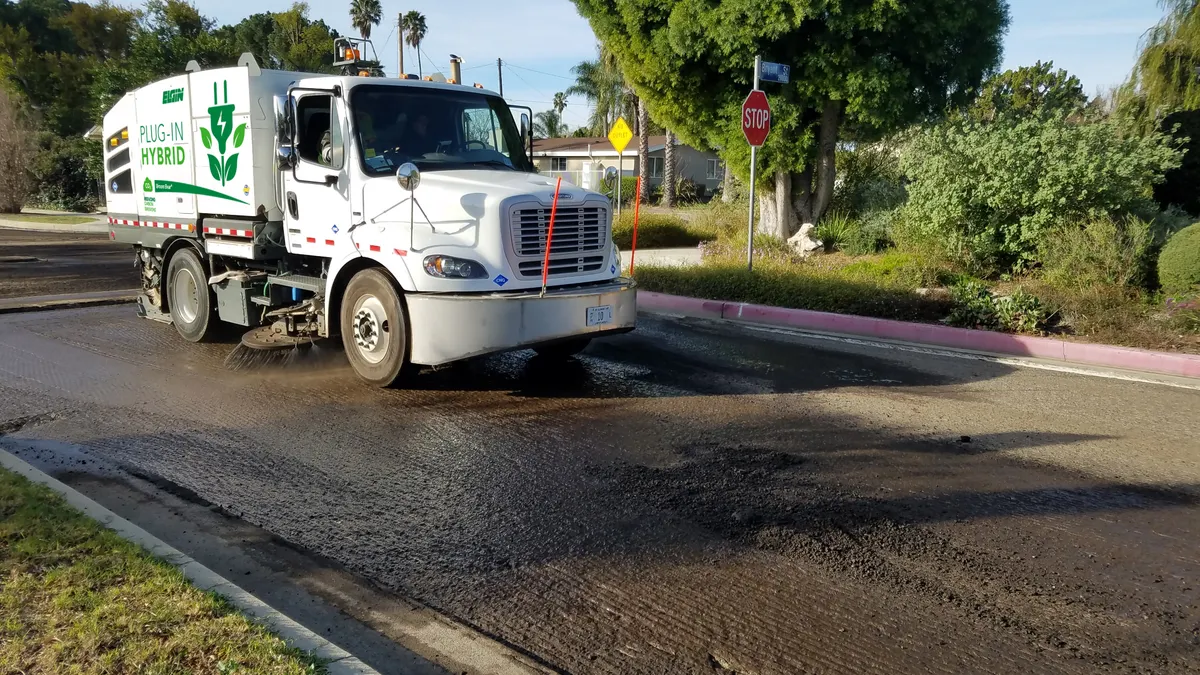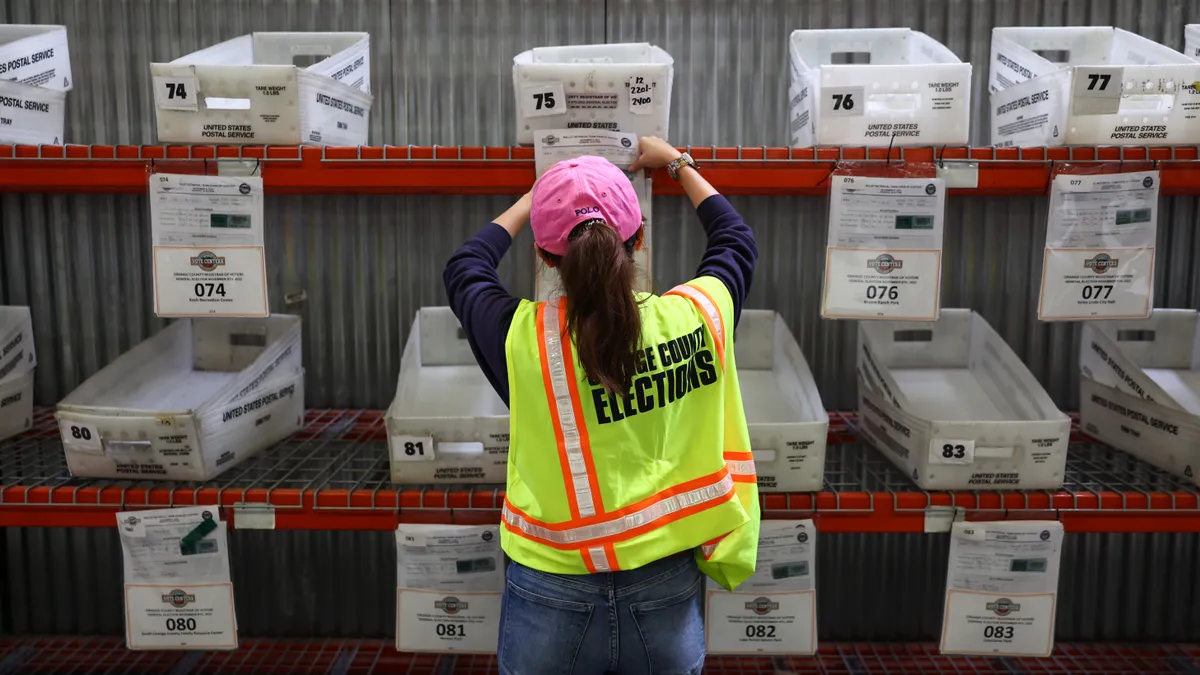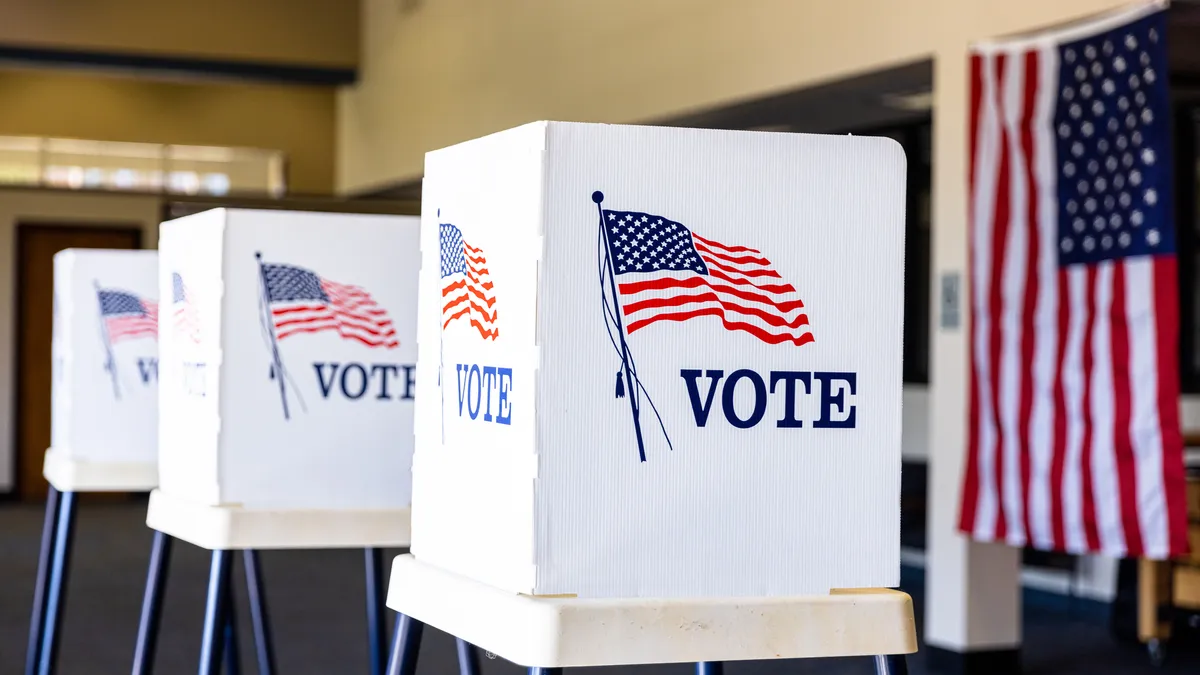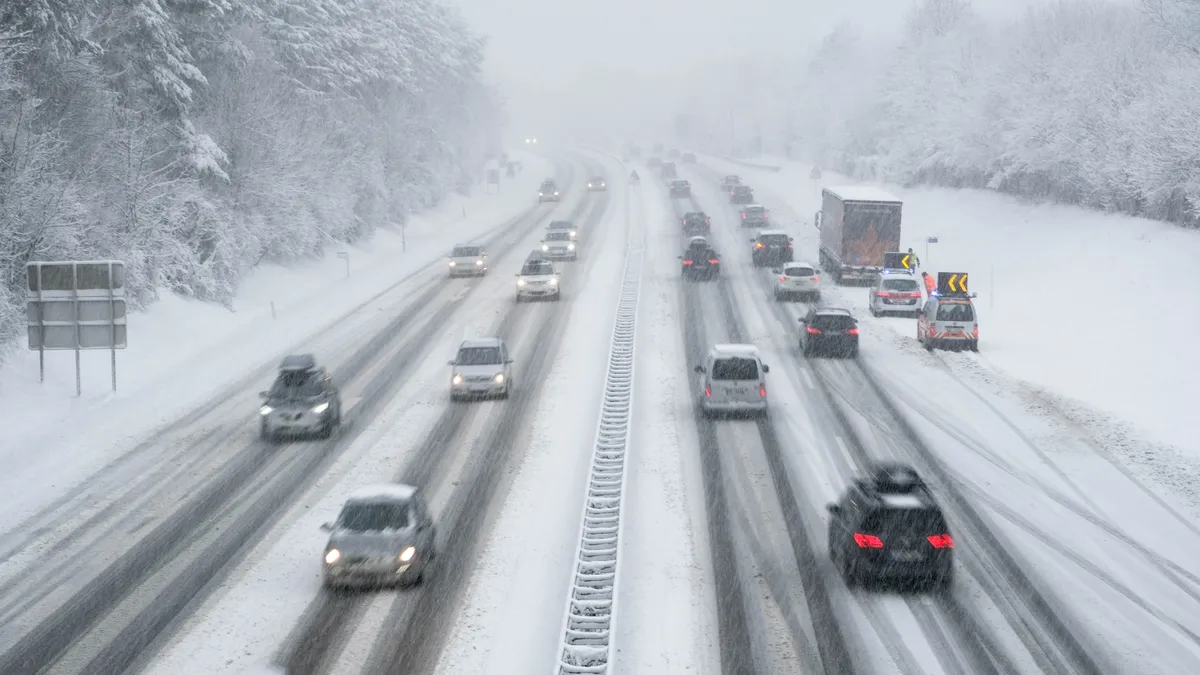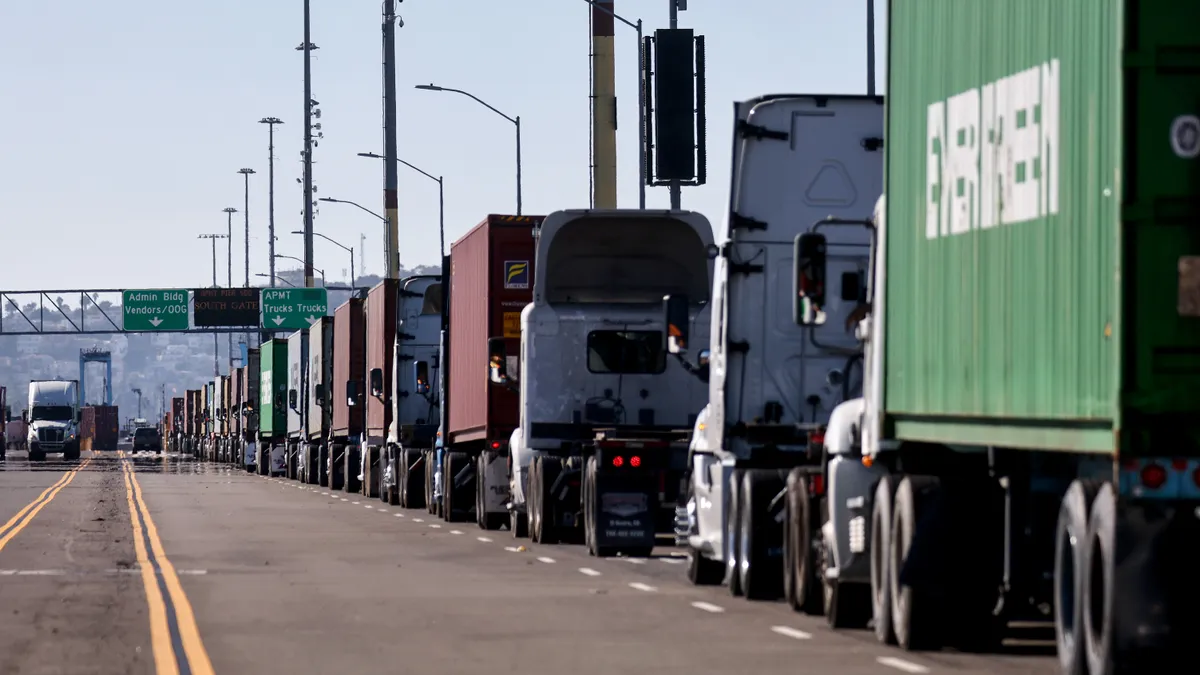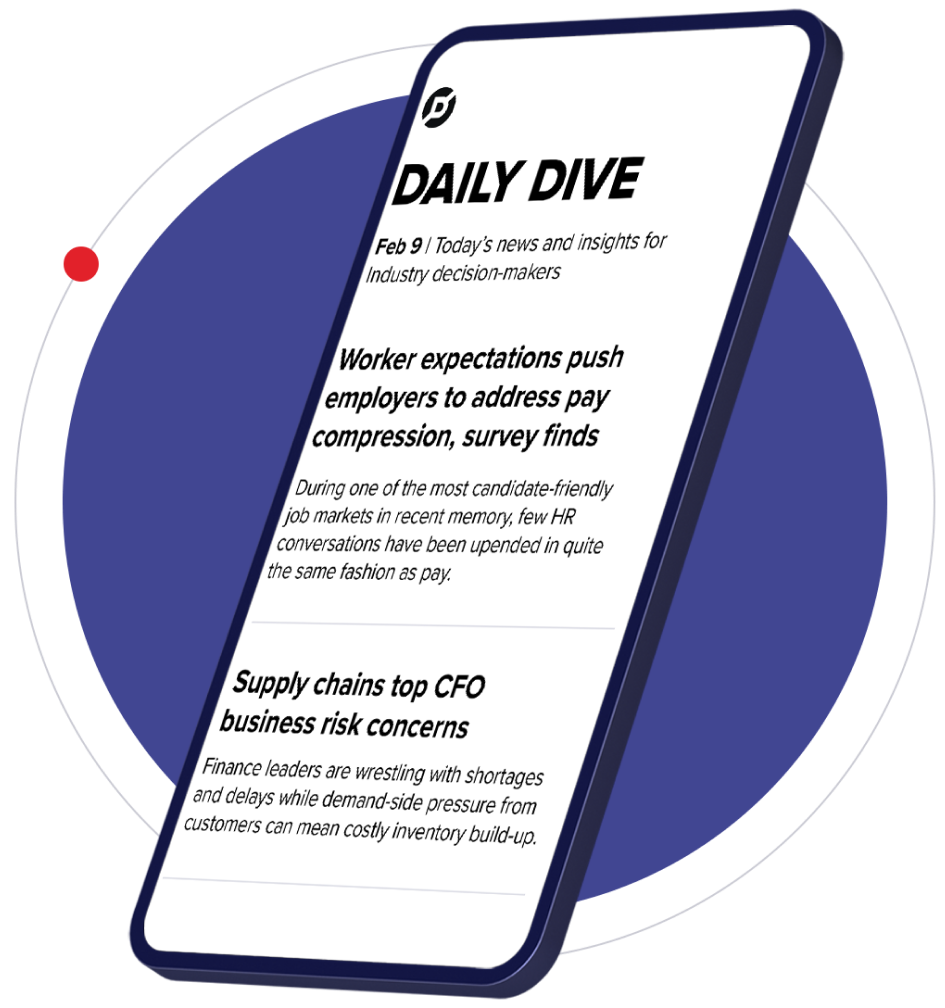Climate & Resilience: Page 33
-
NYC to expand bike lanes, public spaces in 2023
The upgrades build on the city’s Open Streets program, which closes streets to vehicle traffic for use by pedestrians and cyclists, and its efforts to create the largest bike network in the U.S.
By Michael Brady • Nov. 23, 2022 -
Want to electrify your bus fleet? A new FTA-funded research center can help.
Battery and hydrogen fuel-cell electric buses are “fundamentally different technologies” cities and transit agencies will have to learn, said a researcher from The Ohio State University's Center for Automotive Research.
By Dan Zukowski • Nov. 22, 2022 -
 Explore the Trendline➔
Explore the Trendline➔
 Getty Images
Getty Images Trendline
TrendlineTop 5 stories from Smart Cities Dive
From worsening climate change to a shifting transportation landscape and the housing affordability crisis, cities have their work cut out for them.
By Smart Cities Dive staff -
Austin to double e-bike rebates in 2023
The city increased the rebates to encourage more people, especially “historically underserved populations,” to buy and use e-bikes, a spokesperson for Austin’s publicly-owned utility said.
By Michael Brady • Nov. 22, 2022 -
Tampa tries sidewalk solar panels as backup power for traffic lights
The Florida city started using solar sidewalks for backup power after 2017’s Hurricane Irma created lengthy power outages at intersections. It assessed the technology's performance this fall during Hurricane Ian.
By Maria Rachal • Nov. 21, 2022 -
California commits $2.6B to sustainable mobility, prioritizing low-income communities
Calling the funds the "largest state investment yet" in sustainable transportation, the California Air Resource Board will direct the money to help low-income consumers buy EVs, among other programs.
By Dan Zukowski • Nov. 18, 2022 -
COP27: EV sales strong, but more needed to bring down transportation emissions
A BloombergNEF report released at COP27 outlines trends for electric vehicles. Meanwhile, at the global climate summit, a coalition of 200 government and private-sector entities committed to accelerating EV adoption.
By Dan Zukowski • Nov. 16, 2022 -
The 10 most future-ready cities in North America: report
Cities must invest more in digital and physical infrastructure to address today’s challenges but face several barriers, including a lack of public trust, a new report finds.
By Michael Brady • Nov. 15, 2022 -
Electric vehicle sales rise as registrations jump 57% through September
Consumers are shifting away from hybrid vehicles to plug-in EVs as manufacturers offer more models.
By Dan Zukowski • Nov. 14, 2022 -
EV buyer education campaign launches in Colorado
Transportation and energy regulators hope a website and educational materials will help bridge the information gap for residents curious about buying, owning and driving an electric vehicle.
By Dan Zukowski • Nov. 14, 2022 -
White House endorses nature-based solutions in first US road map
The Biden administration said this week’s release in conjunction with COP27 marks the first time the U.S. has developed a strategy to scale up green roofs, rain gardens, urban trees and other green infrastructure.
By Maria Rachal • Nov. 10, 2022 -
Elections 2022
Election results: How housing, transit, environmental issues fared on state and local ballots
California’s millionaire tax for EV incentives was defeated, while several affordable housing and climate funding initiatives passed nationwide.
Nov. 10, 2022 -
With control of Congress unknown, clean energy advocates cheer state wins and press for climate action
So far, it appears Republicans failed to pull off an anticipated “red wave” and Democrats outperformed expectations, analysts say.
By Robert Walton • Nov. 9, 2022 -
Climate funding wins big on state and local ballots
Voters in many jurisdictions embraced spending on resilience projects, clean energy and other climate change mitigation efforts — with one notable exception.
By Maria Rachal • Updated Nov. 9, 2022 -
Amazon rolls out Rivian EVs in more cities for holiday deliveries
The company has delivered more than 5 million packages to U.S. customers using the electric vans since July.
By Max Garland • Nov. 8, 2022 -
COP27 to spotlight implementation, finance for climate action
Even at the global stage, there could be insights on how to best go about decarbonizing U.S. cities from this month’s United Nations climate conference, experts say.
By Maria Rachal • Nov. 7, 2022 -
Sponsored by Elgin Sweeper
Hybrid sweepers deliver uncompromised performance
Elgin Sweeper’s new hybrid sweepers provide uncompromised performance while helping sustainability efforts.
By Elgin Sweeper • Nov. 7, 2022 -
Shared micromobility restrictions can increase traffic congestion and emissions, study finds
Following Atlanta’s nighttime scooter limits, travel time increased 9% to 11%, Georgia researchers found in a study.
By Michael Brady • Nov. 3, 2022 -
Shared mobility key to urban climate action, city leaders say
As 200 nations gather for the COP27 international climate summit, city leaders see shared mobility as the path to “making our communities healthier and more livable for everyone.”
By Dan Zukowski • Nov. 2, 2022 -
Local governments can score sustainability points several ways
Local governments can score sustainability points several ways
By Michael Keating • Nov. 1, 2022 -
Elections 2022
Where voters will consider waste and recycling initiatives
San Francisco and Denver are among the localities with ballot measures, which range from deciding who should handle street cleaning to establishing more widespread access to composting.
By Maria Rachal • Nov. 1, 2022 -
Elections 2022
Climate action ballot initiatives for Election Day 2022
Spending for transportation decarbonization, wildfire prevention, storm resilience and more are up for a vote next week in some states.
By Maria Rachal • Nov. 1, 2022 -
Elections 2022
Housing, transit, environmental issues on state and local ballots
Residents in 37 states will vote on 132 statewide ballot measures on Nov. 8, according to Ballotpedia. Read our coverage on measures addressing top smart city concerns.
By Michael Brady • Oct. 31, 2022 -
Lower speed limits for trucks don’t decrease crash risk in construction zones: report
Vehicles can get hit from behind or sideswiped when motorists merge in poor weather conditions, a study backed by the U.S. Department of Transportation said.
By Charles Pekow • Oct. 31, 2022 -
California moves toward mandating zero-emission heavy-duty vehicles
To fight air pollution, the California Air Resources Board discussed a proposal to begin requiring government and commercial fleets to purchase cleaner vehicles. A plan could be in place by next year.
By Dan Zukowski • Oct. 28, 2022 -
Boston wants to use curb bump-outs to manage flooding, boost resilience
Curb extensions must incorporate at least one of five green infrastructure features, from rain gardens to porous paving, to improve water management and reduce environmental impact, according to the proposal.
By Katie Pyzyk • Oct. 28, 2022

